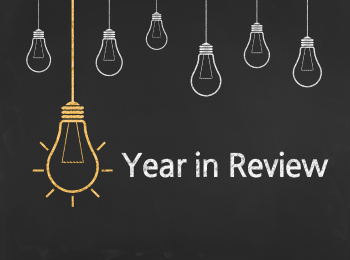The Role of Agency Procedures in E&O Loss Control
An insured has a loss that exceeds her policy limits. She claims that, a short time ago, she had called and increased her limits. The agency has no record of such a call. The adjuster has suggested that she recover the remainder of the claim from the agency’s E&O policy. Without documentation, how does the agency defend itself? Answer: a written agency procedures manual that incorporates the “invariable practice” principle.
Author: VU Faculty An insured has a loss that exceeds her policy limits. She claims that, a short time ago, she had called and increased her limits. The agency has no record of such a call. The adjuster has suggested that she recover the remainder of the claim from the agency’s E&O policy. Without documentation, how does the agency defend itself? Answer: a written agency procedures manual that incorporates the “invariable practice” principle.
“The insured then has a claim on the FPP over the amount of the limit on the policy and advises us that the claims adjuster said she should go to our E&O for the amount not covered. “I realize this is more of a legal question, but I need to respond to the insured’s letter. Any help is greatly appreciated. We feel we have done our duty to advise her that, if it is not scheduled it is not covered, with a letter with each renewal and discussion over the phone.”
The agent has a duty to follow the instructions of the insured. Your insured is claiming that a telephone call was placed to your agency, but they cannot find their note and you have no record of the call. Do you have a written procedures manual that requires documentation of all telephone calls? Are these procedures consistently followed and do you monitor your procedures for compliance? Based on the information you have provided, you have documented the coverage offered at renewal. Do send a renewal letter to all farmowners policyholders with the same type of information? Most E&O claims have nothing to do with negligence, but more to do with the inability to provide documentation to prove that you were not negligent. E&O carriers’ claims files are full of situations just like this one. BTW, is the adjuster working for the insured’s carrier? If so, I would be having a talk with the claims department’s manager very, very soon.
1. The insured’s story sounds very fishy at best. Could she prove through telephone records that she even made a call when she claims she did? Presumably she “remembers” the increased amount she requested, but does she “remember” the amount of additional premium, or didn’t she bother to ask? Did enough time pass so that she should have expected correspondence or a premium bill before the loss happened? 2. Was the loss of the kind that could have actually occurred (and not been discovered or concealed) before the supposed call requesting higher limits? 3. Would such a request have been granted automatically anyway? If so, when? (How much of an increase was supposedly requested, would the agency normally make further inquiries, etc.?) Is there scheduled property involved, changes in the schedule, or something else like that? If so, did the insured keep a record of those things? 4. If the carrier tries to blame the agency for losing track of the request, if they are considered the agent of the carrier, then the carrier is probably on the hook for whatever would have necessarily resulted from the request if it had been correctly processed anyway. 5. Maybe this is an independent adjuster who is not sensitive to protecting the interests of a company’s agents? 6. I would suggest reporting this to the E&O carrier immediately.
After all is said and done on the E&O side, it’s time to address the adjuster. My first thought has something to do with honey and fire ants!!! I think I would go much higher than the adjuster’s manager.
Legally, it’s a “he-said/she-said” situation and the documentation of prior communications with this insured will be a key factor in evaluating the case. Of course, the E&O carrier may decide in the long run that it’s best to settle than spend money on a lawsuit.
Of course, for the insured to succeed in a suit for E&O, he or she must prove that you breached your duty as a broker. Since they can’t prove they ordered different limits and your records indicate that they did not, the suit should fail. I would advise the insurer or adjusting firm that, if your insured sues you, as suggested by the adjuster, that you will expect them to defend and indemnify you, or you will seek damages from them. Depending on the amount of the claim, that threat might cause them to pay the loss to avoid litigating with you. Insurers have enough trouble with insureds who refuse to read their policies, even after a claim, to go out and solicit litigation.
The key issues, if you are to avoid most E&O claims in which your are innocent of any negligence or wrongdoing are: 1. Written Agency Procedures. Hopefully, your agency has a written procedures manual that specifies how such requests are handled, documented, etc. Aside from the obvious business advantages of such procedures, a good agency procedures manual demonstrates to the court, if it gets that far, that you have sound business procedures in place to avoid such omissions. 2. Evidence of “Invariable Practice.” The “Invariable Practice” rule (coined by our Florida association, based on a Florida statute when physical documentation or evidence is absent) is: “One way, all the time, by everyone.” By preventive periodic audits and file reviews following an E&O claim, you can demonstrate through file documentation, for example of telephone calls, that you not only have inflexible procedures in place, but that everyone, agency-wide, also CONSISTENTLY follows them. 3. Documentation. Obviously, there won’t be documentation of a telephone call if, as the agency asserts, one was never made. Otherwise, though, your single best defense is documentation and it will certainly be a key in examining your customer files for documentation of similar situations. One other thing…I’d contact the insurance company or adjusting firm and ask them at what point they adopted the practice of advising YOUR clients to sue you. Such behavior is unprofessional and unethical, not to mention possibly being a breach of contract or tort, and should be stopped immediately. |
 “What are the duties of the agent in the event that the insured of a farmowners policy claims that she called us to increase her FPP (farm pers. prop.) and has misplaced her notes requesting who she spoke to in our office. We have all correspondence with the insured on file which nowhere refers to this conversation.
“What are the duties of the agent in the event that the insured of a farmowners policy claims that she called us to increase her FPP (farm pers. prop.) and has misplaced her notes requesting who she spoke to in our office. We have all correspondence with the insured on file which nowhere refers to this conversation. In the vast majority of potential E&O cases, documentation is the key to an effective defense. However, under circumstances such as this, there can be no documentation because the agency’s position is that the request never took place. Therefore, the agency’s most effective defense is its procedures manual and the consistency of its business practices. Below are some observations from the VU faculty.
In the vast majority of potential E&O cases, documentation is the key to an effective defense. However, under circumstances such as this, there can be no documentation because the agency’s position is that the request never took place. Therefore, the agency’s most effective defense is its procedures manual and the consistency of its business practices. Below are some observations from the VU faculty.







